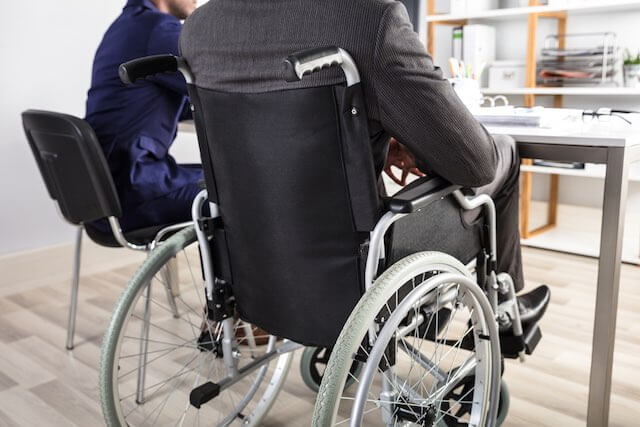Whether you are a current federal employee or recently separated from your agency within the last year, you may qualify for federal disability benefits if you are no longer able to perform your job at a productive capacity.
As a disability retired person from the Federal Bureau of Prisons, I understand how critical it is to understand if you qualify, when to apply, and the processes you need to go through to receive these benefits.
Under the Federal Employees Retirement System (or “FERS”), you must meet a series of conditions laid out by the Office of Personnel Management (OPM). Those conditions include:
- Having completed at least 18 months of work creditable under FERS.
- While employed, becoming disabled due to injury or diseases that hinders your ability to provide “useful and efficient service” in your current position.
- Having certification from your agency that they are unable to accommodate your disability and cannot reassign you to another position in the same agency or at your pay grade.
- Your disability must be expected to last longer than one year.
- That either you or your guardian must apply for disability retirement to either your agency or OPM within the first year of your separation from service.
- You must apply for social security disability benefits.
It is important to note that your disability does not need to have been caused by a work related injury/reason. Also, you do not have to be approved for social security benefits to get approved for FERS disability retirement benefits.
Assuming you meet the conditions above, you then have to complete both an SF 3107, Application for Immediate Retirement, and an SF 3112, Documentation In Support Of Disability Retirement form. While your agency can help you fill out these forms and send the forms to OPM, the responsibility to provide the required proof and documentation will fall on you.
Remember that if you are looking to apply for disability benefits, you must act fast. As mentioned, OPM must receive your application within the first year of your separation date. Delaying your application can lead to problems at your agency with not having your personnel records easily available to submit the application in a timely manner. It’s always a good idea to consider sending your application directly to OPM rather than submitting it through your agency.
If your application is approved, your final retirement record will be sent to you by OPM, and your agency will confirm your date of separation. You may be asked by OPM to send periodic medical updates on your condition in order to continue receiving benefits. In the event any medical examination is needed to retrieve those updates, you will be required to pay for those exams. If you do not provide the requested evidence, your disability benefits could be put on hold until you do. If you are found healthy or no longer obtain regular medical treatment, your benefits could also be terminated.
If your application is denied, you do have thirty (30) days to ask for a reconsideration, where you can provide additional or updated proof to your record. If the resulting decision still denies you FERS disability retirement benefits, you do have the right to have your case reviewed by an Administrative Judge of the Merit Systems Protection Board.
While FERS disability is designed to help federal service workers, it can be difficult to navigate and keep track of the required documentation and timing requirements. It may be wise to speak with an experienced federal employment lawyer to guide you through the process and represent you in the situation where you find yourself with a denied application.





